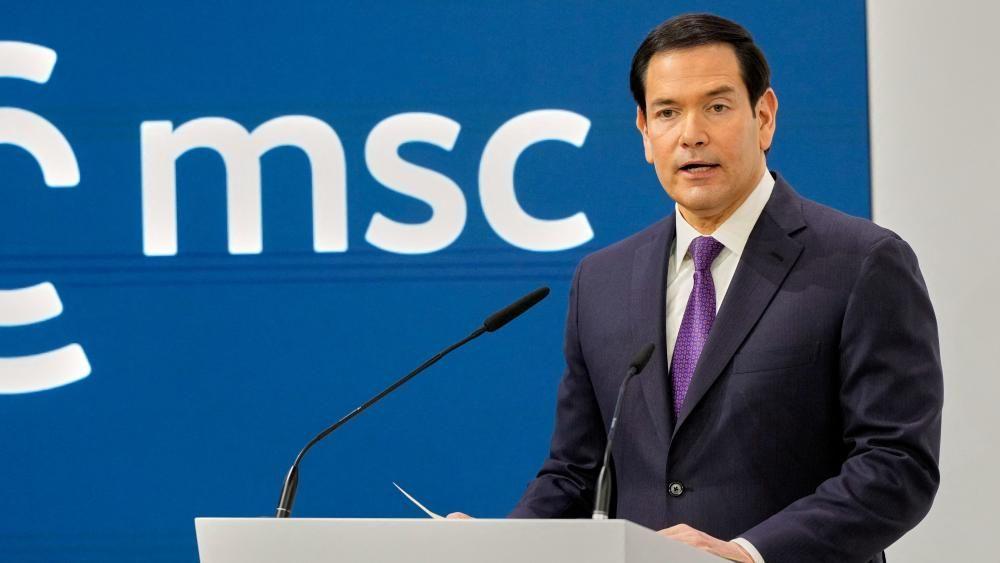US Secures Major Intel Stake: Trump's Bold Corporate Move Sends Shockwaves

President Donald Trump announced on Friday that the U.S. government has secured an approximately 10% equity stake in the struggling Silicon Valley pioneer, Intel. This extraordinary intervention involves the conversion of government grants into an ownership share, marking a significant turn of events, especially given President Trump had previously depicted Intel’s CEO, Lip-Bu Tan, as a conflicted leader unfit for the job.
The U.S. government’s stake was acquired by purchasing 433.3 million shares of non-voting stock at $20.47 apiece, totaling $8.9 billion. This price represented a discount from Intel's closing share price of $24.80 on Friday, immediately yielding an on-paper gain of $1.9 billion for the government. The funding for this stake primarily originated from $5.7 billion in unpaid grants under the Biden-era CHIPS and Science Act, designed to foster domestic chip manufacturing, and an additional $3.2 billion from the “Secure Enclave” program, also awarded under the previous administration.
This deal makes the U.S. government one of Intel’s largest shareholders at a critical juncture for the Santa Clara, California-based company. Intel is currently in the process of laying off over 20,000 workers as it attempts to recover from years of strategic missteps and financial challenges, including an annual loss of $18.8 billion in 2024 and losing over $22 billion since the end of 2023. Intel’s current CEO, Lip-Bu Tan, who was hired in March, has been tasked with turning around the American chipmaking icon.
The relationship between Trump and Tan had been fraught. Earlier in August, concerns were raised by lawmakers regarding Tan’s past investments in Chinese companies as a venture capitalist, leading Trump to publicly demand his resignation. However, Tan professed his allegiance to the U.S. in a public letter to Intel employees and subsequently met with President Trump at the White House, leading to this deal. Following the agreement, Trump hailed Tan as a “highly respected” CEO, while Tan applauded Trump for “driving historic investments in a vital industry” and expressed gratitude for the administration’s confidence in Intel, committing to advance U.S. technology and manufacturing leadership.
Despite the government’s investment, Intel's stock price remains only slightly above its level when Tan was hired in March and more than 60% below its peak from 25 years ago, when its chips dominated the personal computer market. The company’s current market value stands at approximately $108 billion, a fraction of the $4.3 trillion valuation of the current chip industry leader, Nvidia. Analysts like Daniel Morgan of Synovus Trust question whether a cash infusion alone will be enough to surmount Intel's deep-seated problems, particularly its loss-making contract chip manufacturing business, known as its foundry unit, which struggles to compete technologically with companies like TSMC.
The U.S. government’s intervention aligns with Trump's broader agenda to boost domestic production and lessen dependence on overseas manufacturing, particularly in the race for artificial intelligence leadership against China. This strategy has seen the administration leverage its power over other major chip companies, such as requiring Nvidia and Advanced Micro Devices to pay a 15% commission on their chip sales in China in exchange for export licenses.
While the U.S. government’s stake is passive, without voting rights or a seat on Intel’s board (though it will generally vote with the board), critics view this deal as a troubling cross-pollination between public and private sectors. Scott Lincicome of the Cato Institute warned that such moves could harm U.S. companies and tech leadership, potentially pressuring companies to favor Intel chips to curry political favor. Investors like Nancy Tengler of Laffer Tengler Investments also voiced concerns about the benefit to taxpayers and the risk of government meddling in corporate affairs, advocating for the private sector to drive such decisions.
This is not an entirely unprecedented move; the U.S. government famously injected nearly $50 billion into General Motors during the 2008 Great Recession, acquiring a roughly 60% stake, although it ultimately incurred a loss upon selling its shares. Other recent interventions include the Pentagon becoming a major shareholder in MP Materials and the government acquiring a “golden share” with veto rights in Nippon Steel’s acquisition of U.S. Steel. The Intel deal also includes a five-year warrant for an additional 5% of Intel stock at $20 a share, which the U.S. can exercise if Intel loses control of its foundry business, highlighting the government's continued interest in the company's strategic assets.
You may also like...
Super Eagles Fury! Coach Eric Chelle Slammed Over Shocking $130K Salary Demand!
)
Super Eagles head coach Eric Chelle's demands for a $130,000 monthly salary and extensive benefits have ignited a major ...
Premier League Immortal! James Milner Shatters Appearance Record, Klopp Hails Legend!

Football icon James Milner has surpassed Gareth Barry's Premier League appearance record, making his 654th outing at age...
Starfleet Shockwave: Fans Missed Key Detail in 'Deep Space Nine' Icon's 'Starfleet Academy' Return!

Starfleet Academy's latest episode features the long-awaited return of Jake Sisko, honoring his legendary father, Captai...
Rhaenyra's Destiny: 'House of the Dragon' Hints at Shocking Game of Thrones Finale Twist!

The 'House of the Dragon' Season 3 teaser hints at a dark path for Rhaenyra, suggesting she may descend into madness. He...
Amidah Lateef Unveils Shocking Truth About Nigerian University Hostel Crisis!

Many university students are forced to live off-campus due to limited hostel spaces, facing daily commutes, financial bu...
African Development Soars: Eswatini Hails Ethiopia's Ambitious Mega Projects

The Kingdom of Eswatini has lauded Ethiopia's significant strides in large-scale development projects, particularly high...
West African Tensions Mount: Ghana Drags Togo to Arbitration Over Maritime Borders

Ghana has initiated international arbitration under UNCLOS to settle its long-standing maritime boundary dispute with To...
Indian AI Arena Ignites: Sarvam Unleashes Indus AI Chat App in Fierce Market Battle

Sarvam, an Indian AI startup, has launched its Indus chat app, powered by its 105-billion-parameter large language model...





